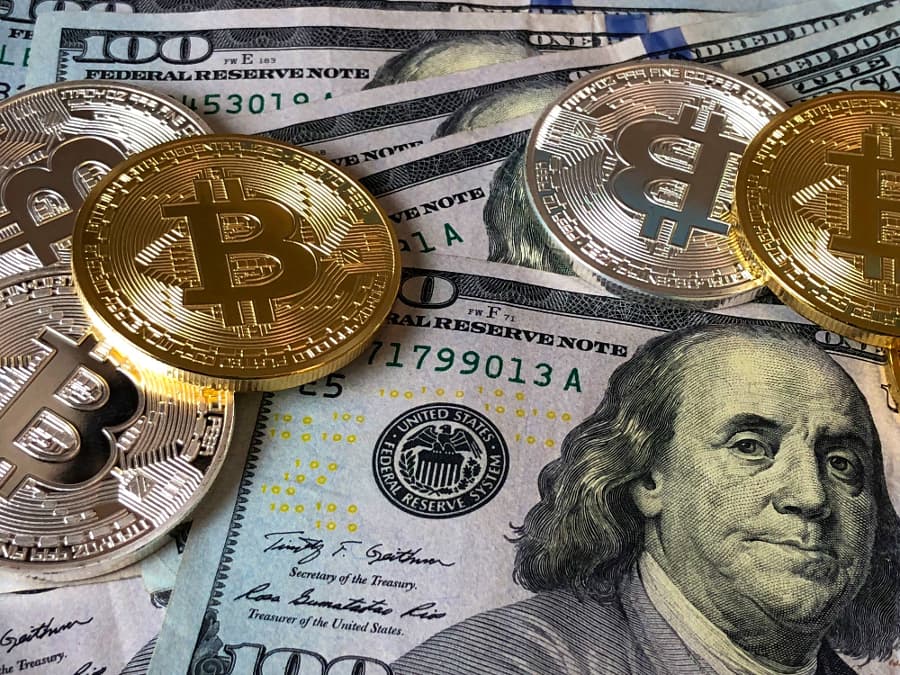By Embracing Regulation, Crypto Can Fulfill Its Potential
Someone has to stand behind promises. The genius of Bitcoin — that math can do the work of government — only works if there is a credible commitment not to change the rules, that is, not to cheat.

Among collectors, it is said that art is cheap; it is assurances that are expensive. What gets people to spend thousands on some dribbles on a canvas by a no-name is the promise — by a gallery owner or other “expert” — that the thousands will become millions.
The value of money is the same.
Creating money is easy. Anyone with a color printer can do that. What makes money “expensive” is the assurances that come with it.
The central promise is that the maker won’t print too much. This ensures that it will be a reliable medium of exchange and store of value.
If the government just prints money to pass out to voters, inflation destroys savings and investments, and it makes everyday transactions, from hiring workers to buying bread, much more complex.
Government money has, at least in America, had a remarkable run at this. Prior to the widespread adoption of government-issued paper money during the Civil War, privately issued bank notes were what people used, alongside gold and silver coins, for money.
The Bank of Deadwood made promises that its notes could be redeemed for gold, but would the bank pay when someone showed up to redeem a trunk full of bills?
The possibility that the promoters of the bank would issue the notes, and then run off with the gold, or perhaps squander it on a foolish gamble, limited the usefulness of this system.
Money issued and backed by the government was a way of improving these promises.
The problem of assurances, however, did not go away. Government is run by politicians, and politicians may be tempted to print money to buy votes.
Even insulating decisions about money from politicians, such as through the independent Federal Reserve, has proven only somewhat effective.
Whether it is the unwillingness to take away the punch bowl from the party just as it is getting going, as chairman Alan Greenspan failed to do, or backstopping huge increases in federal spending, as recent Fed chiefs have done, the result has caused significant economic risk and loss.
It is for this reason that in the 1970s Milton Friedman dreamed of replacing the Fed with a computer that would increase the money supply in predictable ways.
Enter Satoshi Nakamoto.
In a paper published in 2008, Nakamoto proposed a new currency, called Bitcoin. It addressed the assurances problem by creating money — called Bitcoin — in ways dictated by math. New Bitcoin are created not by the whim of a bureaucrat but by solving very complex math problems, and the number that can ever be issued is capped.
Milton Friedman’s dream was realized. Since making “money” is an easy way to get rich, Bitcoin spawned countless imitators. The crypto gold rush was on.
But Bitcoin and other crypto assets do not really solve the assurances problem, they just move it back one step.
After all, who is to say that the people who run Bitcoin won’t change the rules of the system, and “print” a bunch of Bitcoin, despite the promises they made?
There have been allegations along these lines with various crypto assets, some of which are almost assuredly schemes designed to profit from the gold rush, rather than promising innovations.
Here is where the government can help.
Someone has to stand behind promises. The genius of Bitcoin — that math can do the work of government — only works if there is a credible commitment not to change the rules, that is, not to cheat.
Reputation can provide some constraint on cheating. You probably don’t trust McDonalds because of government inspectors, but because of its brand.
For something like “money,” however, the return from a giant fraud is too tempting. If the founders of a crypto currency sold billions, then took the money and fled to the Bahamas, they might be fine with their ruined reputation.
Government has not done its part.
America lacks a comprehensive regulatory regime for crypto assets, preferring so far to bring enforcement actions against bad actors.
While going after fraudsters is laudable, the regulatory lacuna has driven American crypto investors overseas, where they are more vulnerable.
What is needed is regulations that back the assurances of the promoters of crypto assets.
Providing the infrastructure that enables people to make credible promises is what can unlock value. It is what makes money, as art, expensive.
Notwithstanding the potential for a bait-and-switch, sixty million Americans are invested in crypto.
Not just Bitcoin and other potential new currencies, but also in new ways of running companies or doing things online, all supported by digital asset technologies.
These investors are drawn by the possibility that one or more of these new companies will become a Google or an Amazon, or that something like Bitcoin might rival the Fed.
Asking the government to help crypto, however, is a big ask.
At base, alternative currencies present a threat to the government’s monopoly on money, and thus its power.
It is for this reason that the Chinese Communist Party banned crypto, and perhaps why American regulators have slow-walked clear rules that would onshore American investments and ignite crypto innovations.
Washington is tied in knots. Regulatory agencies are squabbling over the power to write rules of the road for crypto. That crypto — sort of a currency, sort of a security, sort of a commodity — falls in the regulatory lacuna has meant uncertainty. The result is less investment in America.
It is time for the government to act, even if it means creating the tools that may ultimately take away some of its power over our lives.

